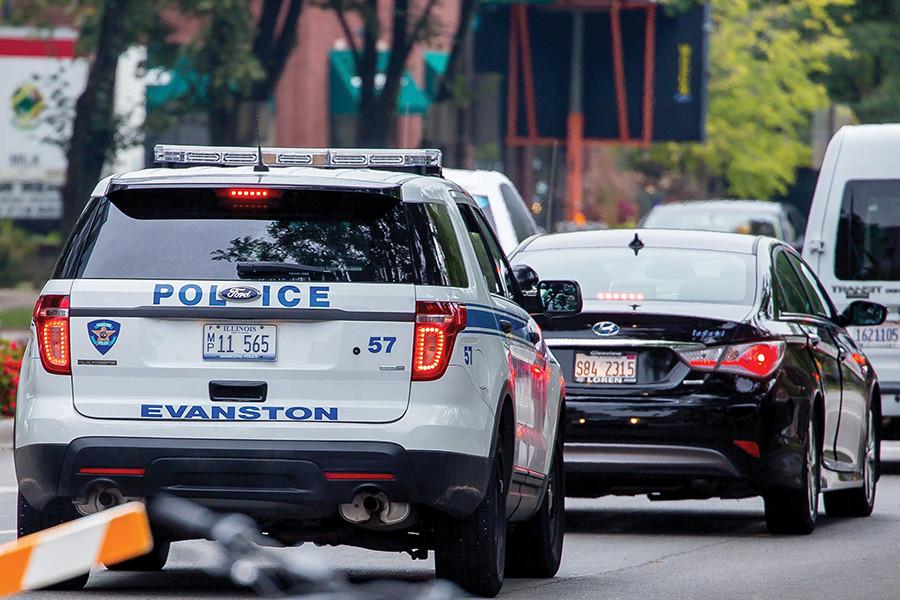Evanston police plan community-specific diversity training for officers
Daily file photo by Zack Laurence
Evanston Police Department is planning to introduce a new diversity training curriculum for its officers with a focus on specific community needs. The year-long program will debut this spring.
November 22, 2015
Evanston Police Department is developing a new curriculum for its diversity and inclusion program amid continuing tensions between police forces and their communities nationwide.
Gov. Bruce Rauner recently signed legislation mandating human rights training every three years for police departments throughout the state. However, EPD officials said Evanston’s diversity and inclusion program will more than fill that requirement when it debuts this spring.
Evanston’s new curriculum will be unique because of its extended length and focus on local concerns, said Evanston police Cmdr. Joseph Dugan. Although Evanston police currently participate in cultural diversity training, this is the first program that extends beyond a day-long course, Dugan said.
“We’ve had a lot of diversity training in the past — once in spring and once in fall,” he said, “But we haven’t had a program like this — one that lasts all year and involves the community in its creation.”
The program, currently run by Gilo Kwesi Logan, president of Logan Consulting Services, is in a four-month analysis stage that will finish in early December. So far, the process has consisted of meetings, interviews and group sessions facilitated by Logan with EPD officers and community members to understand the current relations between the public and police, including the unique problems Evanston faces.
Ald. Peter Braithwaite (2nd) said Evanston is one of the first cities in the nation to develop a community-specific training program.
“Cities are training police officers for diversity and sensitivity,” Braithwaite said. “But we’re the first that are creating a program from scratch that addresses what’s actually going on here, with no generalities. It’s a big step towards getting police as in tuned as possible with the community.”
Dugan also said the training is unique because Logan grew up and now lives in Evanston.
“Other trainings we’ve had, when somebody comes from another state to do something, it’s foreign to them — they don’t know what you’re talking about,” Dugan said. “It really brings it home that we’re working with someone who’s from here.”
Logan said although no curriculum is set in stone for the program yet, it will mirror social justice classes he has taught at Northeastern Illinois University. The trainings will be held in small groups with police, allowing for discussion on issues like biases, stereotypes and leadership while addressing issues of identity.
“Adults don’t learn by sitting in lecture halls,” Logan said. “It’s about creating an environment where people can discuss these issues and grow. This program is meant to facilitate a process to contextualize content that the community provides and allow police to collaborate and find the best way to address these issues.”
Next, the program will move into a design phase, where Logan will run pilot programs to solidify the content and structure of the trainings. Over the next four months, Logan will host 18 four-hour workshops with small groups of Evanston police officers, testing what kind of structure and content works best for Evanston. In April, the program will be used on all police and evaluated for future use.
Logan said he’s grateful to the city for making sure to address police-community relations outright and trying to improve interactions between the parties even before the new Illinois law has been enacted.
“Looking at the climate in our nation, I appreciate the proactive approach of the city, whether I’m involved in it or not,” Logan said. “This is the type of community I’d like to live in — (one) that’s responding to the calls and the needs of the community.”
Email: robinopsahl2018@u.northwestern.edu
Twitter: @robinlopsahl



